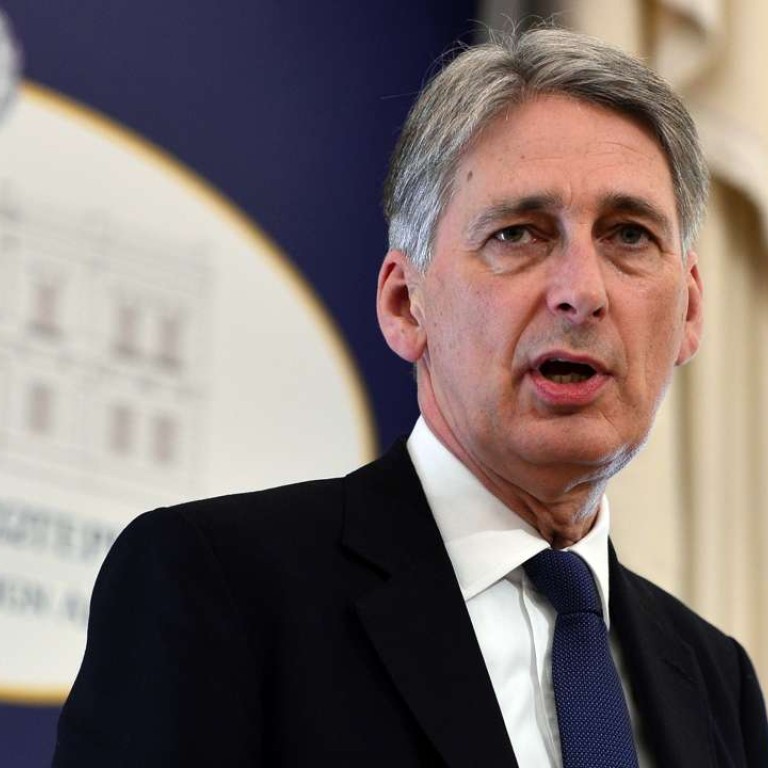
Brexit: Britain can capitalise on opportunities to expand economic ties with China
One area of cooperation may be in participation in projects linked to Beijing’s ‘One Belt, One Road’ initiative
A few weeks ago the British Chancellor of the Exchequer Philip Hammond visited China and Hong Kong, demonstrating the continued importance of the region just weeks after his appointment by new Prime Minister Theresa May. As the former foreign secretary, he is no stranger to engagement with China and that continuity will be welcome.
It was timely that the G20 met in Chengdu and that the chancellor extended his trip to Hong Kong. The UK wants to build on its relationship with China, which has strengthened significantly in recent years, and establish post-Brexit dialogue as it already has with other leading trading partners such as Australia and India.
The Brexit story will take longer to play out but it is critical to have these conversations under way, and they will form the basis of the legal framework for trade and investment in the years to come. We do not foresee investment outbound from China to the UK – in areas such as infrastructure and energy – slowing down, but the UK must reflect deeply on how Brexit affects its major trading partners and ensure there is no damage to these relationships.
Indeed, legal shifts resulting from Brexit may actually create additional opportunities for Chinese investors. For instance, the final negotiation process may result in changes to European Union procurement law, which currently causes packages of investment to be individualised rather than wrapped.
If the UK moves away from these rules it will have greater flexibility to structure deals that will appeal to Chinese investors, who often like to combine construction and co-financing, for instance. Greater control over procurement rules may make the UK a more attractive investment proposition.
And if Brexit creates closer partnerships between UK firms and investors from mainland China and Hong Kong, one area these may find further expression is within the “One Belt, One Road” initiative. Hong Kong’s position was recently clarified by Zhang Dejiang, who stated that the city was central to the outbound plan for China. He suggested Hong Kong would be a hub for financial accounting, legal services (for example, project finance and dispute resolution) and consultancy.
The initiative does not extend to Britain, but there are huge opportunities for UK businesses in the inbound investments by mainland China and Hong Kong into real estate, infrastructure and energy.
On “One Belt, One Road”, the biggest opportunities for the UK are through collaboration and joint ventures in relation to projects along it, especially where UK engineering and design prowess can enhance propositions for long-term concessions that have high operation and maintenance needs.
It is unlikely that British firms would provide construction services as part of “One Belt, One Road”, but they are well positioned to contribute their design and engineering prowess to particular projects. There is a longer tradition in the UK of skills and experience in relation to particular aspects, such as the adaptability of an asset over a long-life cycle, and it certainly has a role there. We can see engineering expertise from UK-headquartered firms being deployed alongside Chinese interests, especially in third-party countries with traditions of involvement from the UK, China or both.
We must hope that whatever emerges from the legal turmoil and uncertainty of Brexit is a legal framework under which cooperation and trade relationships between the UK and Hong Kong can grow to the strongest they have ever been.
Vincent Connor is a partner and head of Pinsent Masons’ Hong Kong office

